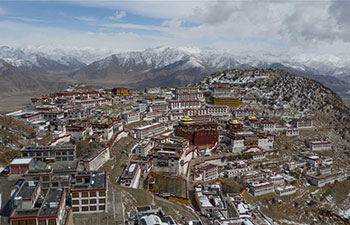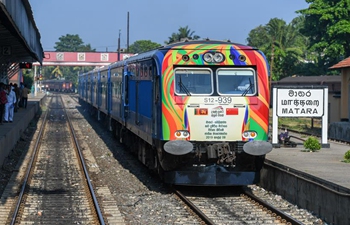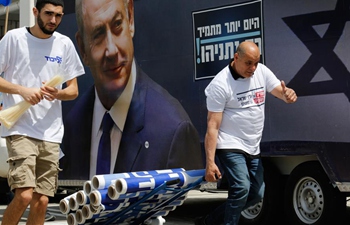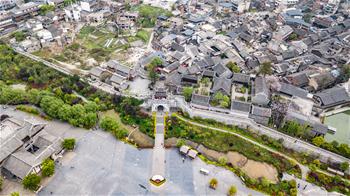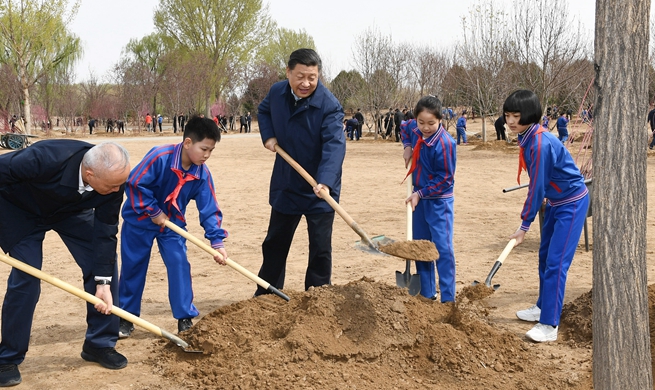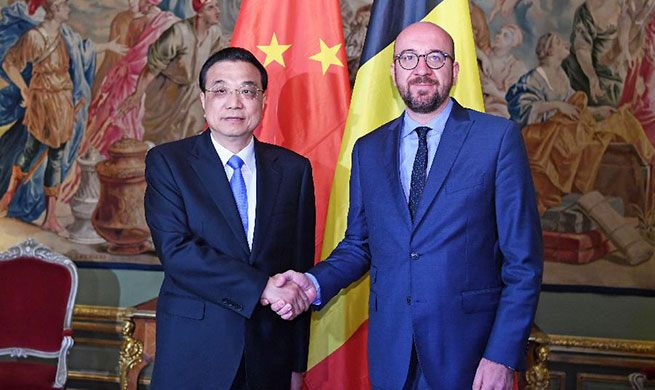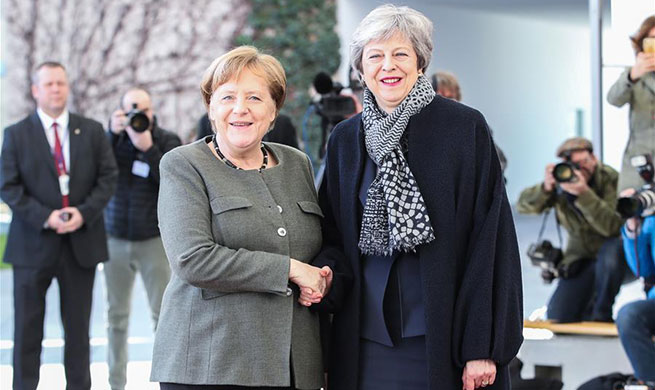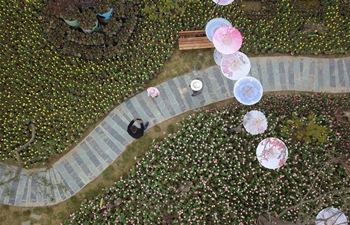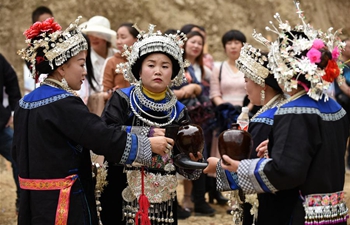CAIRO, April 9 (Xinhua) -- Egypt's Parliament Speaker Ali Abdel-Aal on Tuesday urged no foreign interference in Libya and a peaceful settlement to rebuild the war-torn country, official MENA news agency reported.
Abdel-Aal's remarks came during his meeting with visiting Libyan eastern-based Parliament Speaker Agila Saleh at the headquarters of Egypt's House of Representatives in the capital Cairo.
"Foreign intervention is a big part of the Libyan crisis," Abdel-Aal said.
Last week, the self-proclaimed Libyan National Army (LNA), led by Khalifa Haftar, launched a military campaign to take over the capital Tripoli.
A recent airstrike at the airport outside of Tripoli, later claimed by Haftar's LNA, shut down the capital's only functioning airport.
"The LNA controls nearly 90 percent of all Libyan territories," the Libyan parliament speaker said in Cairo.
"A peaceful settlement is the most suitable for Libya," Saleh added, urging free and fair elections to rebuild the country's institutions.
The Libyan chief legislator highlighted the necessity to dismantle all armed groups and militias in Libya and to have a national army in control of all Libyan soil, calling for halting all forms of foreign intervention in Libyan domestic affairs.
Egyptian officials have repeatedly expressed support for the efforts of the UN special envoy to Libya, Ghassan Salame, to find a way out of the crisis through a political settlement based on dialogue among Libyan rival factions.
Over the past few days, the United Nations has been calling for an immediate halt to the military operations near Tripoli, urging all Libyan parties to engage in dialogue to reach a political solution.
The World Health Organization said on Tuesday that at least 47 people were killed and 181 others injured in recent days as Haftar's LNA seeks to take Tripoli from the internationally-recognized Government of National Accord (GNA) led by Prime Minister Fayez al-Sarraj.
Since the ouster and killing of former Libyan leader Muammar Gaddafi in 2011, Libyan factions have been engaged in a civil war that escalated in 2014 and resulted in splitting power between the Tripoli-based government and the Tobruk-based one.
The eastern-based Tobruk government was recognized by the international community before a unity government, the GNA, was established in late 2015 following a UN-brokered peace deal between warring Libyan factions reached in Skhirat, Morocco.
Supported by Haftar's LNA, the parliament-backed government in Tobruk refuses to recognize Sarraj's UN-backed GNA.
